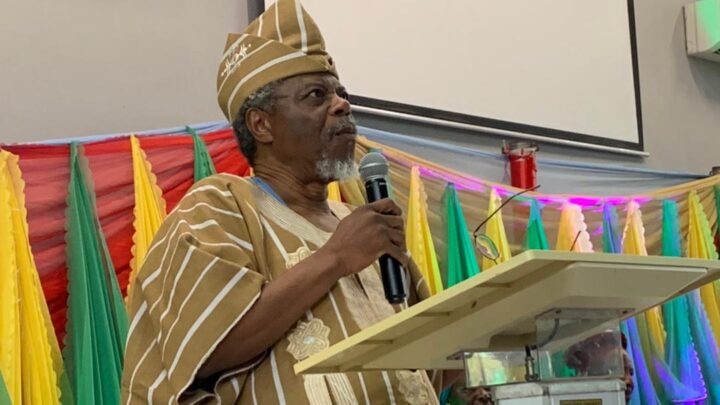Toyin Falola, renowned professor of history, says history shows that the 1914 amalgamation that resulted in making Nigeria into one country should be seen as an inspiration for citizens to remain united.
He said this on Wednesday while delivering a lecture as the guest speaker at an event organised by the department of history and international studies at the Lagos State University (LASU).
According to him, those calling for disintegration of the country need to look back in history and see why it is better for Nigeria to remain as one.
“The threat to Nigerian national unity has grown in recent years, with the Boko Haram insurgency demanding an Islamic state through terrorist attacks. In the south, Biafra apologists and secessionist believers continue to threaten citizens and the government, making demands and enforcing sit-at-home orders. In the South West, there are agitations for a Yoruba nation, calling for the country’s disintegration. These agitations and their tensions keep growing daily,” he said.
Advertisement
“History has shown that the amalgamation of 1914 should not be the cause of the continuing demands for disintegration but should rather be a force for Nigerian unity. This is because of the historical evidence of co-existence and cultural understanding that had existed before the advent of colonialism.
“However, the people of the precolonial communities knew their rules of engagement and the lines they must not cross. History reveals that before the 1914 amalgamation, respect for ethnic values, conviction, and understanding that one group is not superior to the other kept Nigeria together.
“There can only be tolerance and peaceful co-existence when each part of the country sees the other as equal.
Advertisement
“Furthermore, bad leadership and unequal representation of each ethnic group in the country’s political and social matters have made some ethnic groups believe that there is no place for them in Nigeria. These are logical reasons for seeing another ethnic leadership deprive the other of opportunities and development.
“One would ordinarily want to explore internal options. To deal with this, there is a need to restructure the Nigerian system in ways that would properly reflect as many attributes of the ethnic groups as possible, as well as develop ways to ensure adequate representation of the people.”
Add a comment






